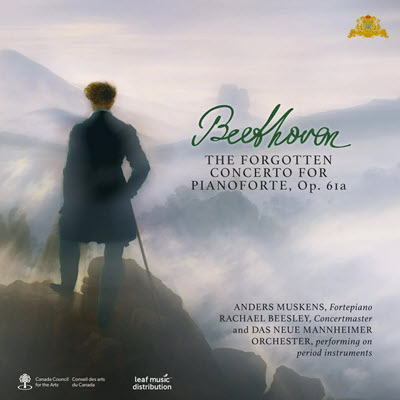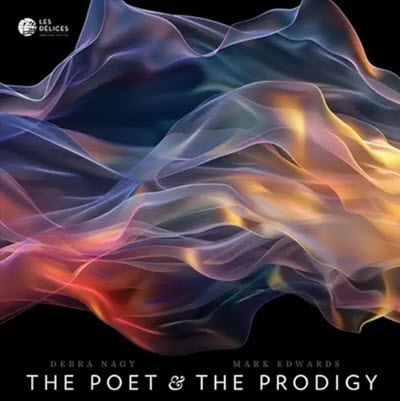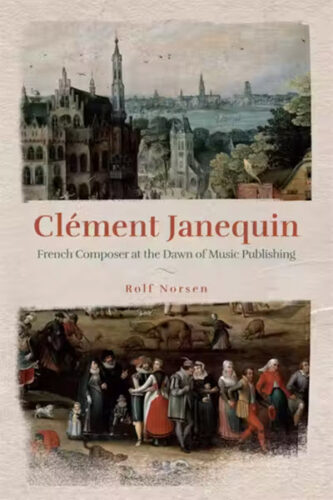by Ken Meltzer
Published June 26, 2023
J.S. Bach: St. John Passion. Cantata Collective, conducted by Nicholas McGegan. Avie AV2605
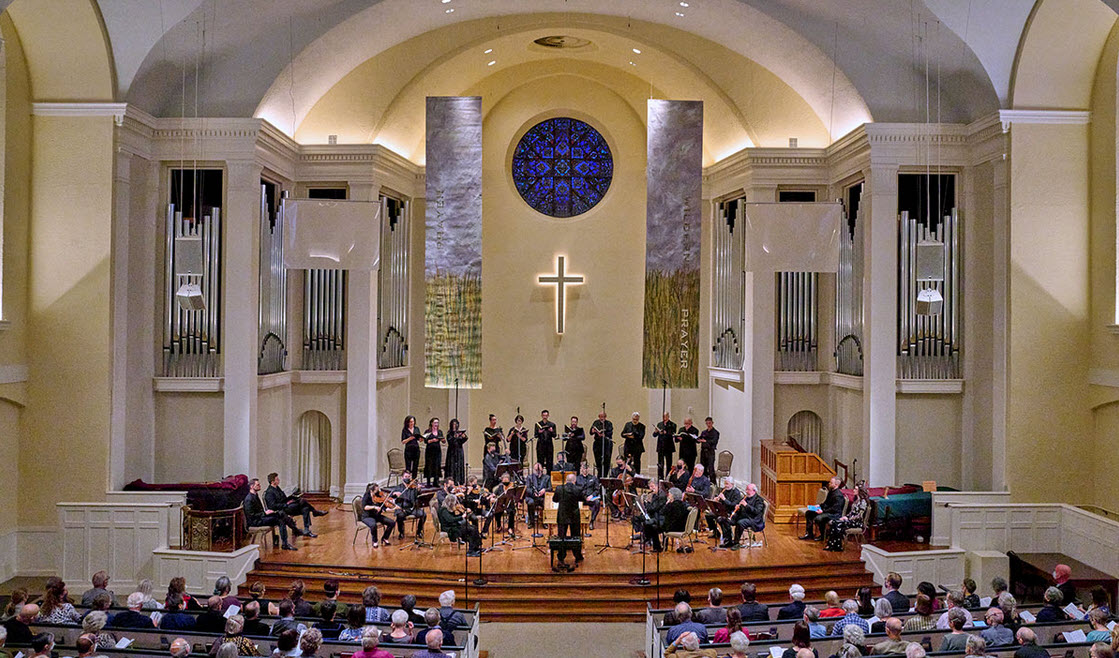
The Cantata Collective, founded in 2017 by members of the Philharmonia Baroque Orchestra, regularly performs Bach cantata concerts in the Bay Area. With keyboardist and conductor Nicholas McGegan, have released two cantata recordings, to high praise.
Now, a new recording of the St. John Passion launches their survey of Bach’s major choral works for the AVIE label, available on CD or for streaming. It’s a most auspicious beginning, one that certainly heightens my anticipation of future installments in the Cantata Collective’s Bach project.
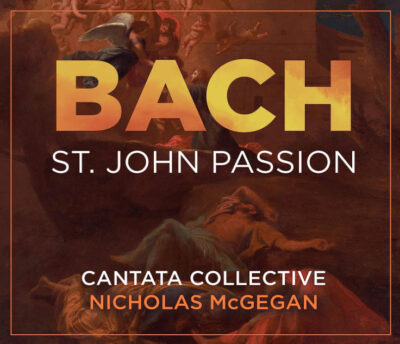
In his informative and engaging liner notes, McGegan acknowledges the different performing versions of St. John Passion, engendered by four separate performances during Bach’s lifetime. As McGegan notes, “there is no single definitive version of the work” and so they chose “to mix and match to some extent.” (The sequence of movements and their musical content on the AVIE recording comport with the Bärenreiter Urtext score.)
McGegan adds: “The size of the orchestra is perhaps similar to that of 1749 and the music for violas d’amore and lute is played on muted violins and harpsichord.” A few comments on performance practice. There is no ornamentation in da capo sections of the arias. Vibrato is integral to the singers’ vocal production. McGegan applies noticeable, but not excessive, ritardandos at the conclusion of many numbers and, on occasion, appoggiaturas are used in recitatives.
For this recording of the St. John Passion, the Cantata Collective employs a mixed chorus of 12 singers (three to each part). Despite such modest forces, there is no lack of requisite authority or volume. The chorus sings with often breathtaking tonal beauty, and with a marvelous balance between each of the voice groupings. The narrative of the St. John Passion requires the chorus to play a vast array of roles, and the singers of the Cantata Collective masterfully embody them all. They are equally convincing as soldiers mocking Jesus, the bloodthirsty crowd, and the masses weeping over Christ’s death.
Thomas Cooley is a sterling Evangelist. The tenor’s voice is gratifyingly focused throughout the registers. The Evangelist’s numerous journeys above the staff are never forced or strained, but they certainly pack the requisite intensity and fire when appropriate. Cooley’s ability to sustain long phrases on a single breath offers many dividends, notably in Bach’s depiction of Peter’s weeping (“und weinete bitterlich”). And Cooley is ever attentive to the text and Bach’s setting of it. His Evangelist is a narrator immersed in the magnitude and emotions of the drama.
As Jesus, Max Paul Tipton’s rich and lovely bass-baritone manifests the appropriate weight and color. Tipton’s noble bearing throughout Jesus’ trials and suffering makes the vulnerability of Christ’s “Weib, siehe, das ist dein Sohn!” (“Woman, look, this is your son!”) all the more heartbreaking. Overall, Tipton’s reading is a worthy realization of Bach’s masterful portrait of Jesus as “the Word became flesh,” a three-dimensional and human protagonist.
Nola Richardson sings the Passion’s soprano arias with elegant phrasing, radiant tone, and splendid ease in coloratura. Countertenor Aryeh Nussbaum Cohen, much talked about these days, triumphs in the alto arias, with a voice of arresting beauty, singing with the utmost expressiveness and artistry. His account of the aria “Es is vollbracht!” (“It is accomplished!”) is among the finest I’ve heard. McGegan paces the aria as a true Molto adagio that Cohen sustains without a hint of strain. The countertenor revels in Bach’s manifestation of grief, applying a kaleidoscope of vocal colors and dynamics, and in tandem with McGegan, a lovely plasticity of phrasing.
Cohen delivers the aria’s contrasting “Der Held aus Juda siegt mit Macht” (“The hero from Judah triumphs with power”) with spine-tingling energy. The tenor arias in the St. John Passion are fiendishly difficult, demanding flexibility and ease in the upper half of the voice. Tenor Derek Chester acquits himself well. Bass Harrison Hintzsche impresses in the dual roles of Pilate and aria soloist.
Tying it all together, McGegan’s pacing, as both conductor and harpsichordist, is exemplary. The narrative of Jesus’ betrayal, trial, and crucifixion maintains an arresting tension and momentum, intensified by the razor-sharp articulation by vocalists and orchestra. In this context, the function of the chorales and arias as episodes of pause and reflection is brought into even greater relief.
The recording, made in concert at the First Congregational Church of Berkeley in March 2022, captures an intimate, detailed, and warm acoustic. It’s billed as a “live” recording yet the audience is silent throughout. In all, this is a beautifully performed and recorded St. John Passion that gives full measure to the work’s remarkable synthesis of devotional and theatrical elements. And I look forward to more masterworks from the Cantata Collective: the ensemble’s B-minor Mass is set for release in the spring of 2024.
Ken Meltzer was program annotator for the Pittsburgh and Atlanta Symphony Orchestras. He currently authors program notes for several U.S. orchestras.

